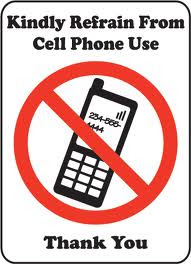The
present ubiquity and conception of mobile cellular technology has been a
significant factor of the modern lifestyle for decades. In the most basic sense, the concept of
mobile technology revolved around several components to make the technology
work. Assuming that an infrastructure is
present to support two phones that will communicate over a radio link through a
network of interconnected radio towers operated by a mobile service operator is
a mouthful of information to convey in just one sentence!! Albeit, despite the wordy explanation we do have
a better understanding of mobile cellular technology – imagine that!!! How does our newly gained knowledge of mobile
cellular technology help us in understanding how to use mobile technology and
perhaps dictate future use?
(Hold
that thought for a moment…)
According
to The Horizon Report (2011), by the year 2015 eighty percent of the people will
be accessing the Internet through mobile devices. In Japan, seventy-five percent of the tech
savvy population is already accustomed to accessing the Internet via mobile
devices. Imagine that in the United
States, cell phones are already native to children under the age of thirteen
and by the time these children reach early adulthood cellular technology would
have outgrown its original purpose (for talking to another cell phone).…Now, I
want you to remember to earlier in this post when we asked ourselves how to use
mobile technology in the not so distant future?
(Good,
glad you are still with me…)
The
future is now… Are we disturbed when we
see signs such as ALL CELL PHONES MUST BE TURNED OFF OR ALL CELL PHONES MUST BE
ON VIBRATE during a study session at the library or while in a dark movie
theater??
I think it is time that we
reconsider how much of an opportunity we are missing by restricting the use of
cell phones in certain ‘quiet’ places.
Imagine using mobile technology to help society dictate future use instead
of future use being dictated by our outdated mobile etiquette? Mobile devices provide a wealth of data
collecting potential that can be infused with ANALYTICS LEARNING to bring forth
new models learning models to help us understand ourselves better. Experiments involving data collected from
social media outlets may already be merging with data from other sources to
help teachers find better and more effective ways of teaching their students
according to learning style.
So how does
our newly gained knowledge of mobile cellular technology help us in understanding
how to use mobile technology and perhaps dictate its future use? The answer may lie in being unconventional –
use mobile technology to help us learn about ourselves instead of us learning how to use mobile technology – use
imagination!!!… Encourage mobile technology and discourage preconceived bias….
Imagine….what
would Einstein do with a tablet device???



No comments:
Post a Comment